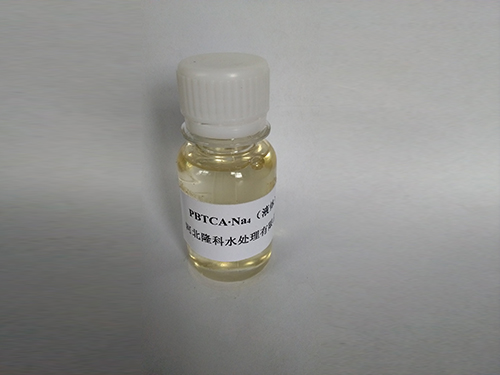scale and corrosion inhibitor chemicals
Scale and Corrosion Inhibitor Chemicals Understanding Their Role in Industrial Applications
In various industrial processes, especially in sectors such as oil and gas, power generation, and water treatment, the phenomena of scale formation and corrosion present significant challenges. Scale, primarily composed of mineral deposits, forms when dissolved substances precipitate out of a solution, while corrosion refers to the gradual destruction of materials, usually metals, due to chemical reactions with their environment. To mitigate these issues, the use of scale and corrosion inhibitor chemicals has become indispensable, ensuring operational efficiency and prolonging the lifespan of equipment.
Understanding Scale Formation
Scale formation occurs when water, often rich in minerals such as calcium and magnesium, is subjected to heat or evaporation processes. For example, in cooling towers and boilers, the increase in temperature can cause these minerals to crystallize, forming hard deposits that cling to surfaces. This can lead to reduced heat exchange efficiency, increased energy consumption, and, ultimately, system failures. The implications are not only financial; they can also result in downtime and safety hazards.
The Impact of Corrosion
Corrosion, on the other hand, is a natural process influenced by environmental factors, such as pH, temperature, and the presence of oxygen and salts. It leads to the deterioration of metal structures, pipelines, and other components, resulting in leaks, failures, and potentially catastrophic accidents. The cost of corrosion to industries is monumental, with billions spent annually on repairs, maintenance, and the replacement of corroded equipment.
Role of Inhibitor Chemicals
To combat these challenges, various scale and corrosion inhibitors have been developed. These chemicals act as protective agents on surfaces, forming a barrier that minimizes the direct interaction between metals and corrosive agents in the environment. Additionally, many of these inhibitors can also help control scale formation, creating a two-fold approach to preserving system integrity.
scale and corrosion inhibitor chemicals

Types of Inhibitors
Scale inhibitors typically include phosphonates, polyacrylates, and other organic compounds. These agents are designed to interfere with crystallization processes, preventing the growth of scale-forming minerals. They work by modifying the surface properties of the particles, making it difficult for them to aggregate and deposit onto surfaces.
Corrosion inhibitors can be broadly categorized into several classes anodic inhibitors, cathodic inhibitors, and mixed inhibitors. Anodic inhibitors, such as chromates and nitrates, work by forming a passive film on the metal surface that hinders oxidation. Cathodic inhibitors, including zinc and molybdate, primarily reduce the rate of cathodic reactions. Mixed inhibitors possess qualities of both anodic and cathodic inhibitors, providing comprehensive protection.
Environmental Considerations and Regulations
With the growing awareness of environmental issues, the selection of scale and corrosion inhibitors also involves considerations of their ecological impact. Certain traditional inhibitors, particularly those containing heavy metals, have come under scrutiny due to their potential toxicity. As a result, there has been a significant shift towards developing green chemistry alternatives that are less harmful to the environment and human health.
Conclusion
In conclusion, scale and corrosion inhibitor chemicals play a crucial role in maintaining the efficiency and safety of industrial systems. By preventing scale build-up and corrosion, these chemicals help reduce operational costs and extend the lifespan of equipment. As industries continue to evolve, so too will the technologies surrounding these inhibitors, focusing on sustainability and reduced environmental impact. As such, the ongoing research into innovative formulations and their applications will be essential for enhancing industrial practices while safeguarding our environment. The importance of these chemicals cannot be overstated; they are pivotal not just in terms of economic implications but also for ensuring safe and sustainable industrial operations in our ever-growing technological landscape.
-
lk-319-special-scale-and-corrosion-inhibitor-for-steel-plants-advanced-solutions-for-industrial-water-systemsNewsAug.22,2025
-
flocculant-water-treatment-essential-chemical-solutions-for-purification-processesNewsAug.22,2025
-
isothiazolinones-versatile-microbial-control-agents-for-industrial-and-consumer-applicationsNewsAug.22,2025
-
scale-inhibitor-key-solutions-for-water-system-scale-preventionNewsAug.22,2025
-
organophosphonates-versatile-scale-inhibitors-for-industrial-water-systemsNewsAug.22,2025
-
scale-and-corrosion-inhibitor-essential-chemical-solutions-for-water-system-maintenanceNewsAug.22,2025





